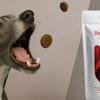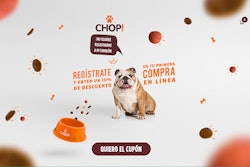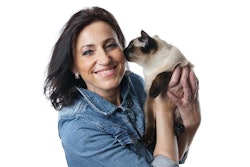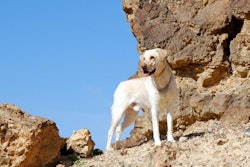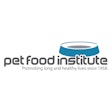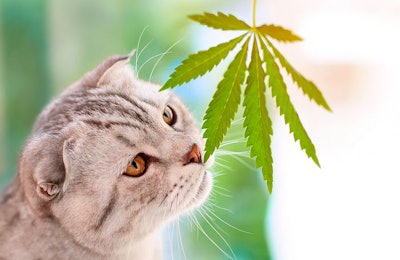
Cannabidiol (CBD) supplements and additives for pets rank high on the list of most popular, and promoted, dog and cat product trends. However, the scarcity of research on how CBD affects dogs and cats matches the abundance of marketing. A scientist with one hemp CBD oil-infused pet treat and supplement company, ElleVet Sciences, collaborated with other researchers from several universities to examine how CBD intake influenced dogs’ and cats’ blood composition, as well as the animals’ behavior. In the experiment, CBD supplementation seemed safe for healthy, adult dogs, but a few issues arose in cats that may need further observation.
“Research on the use of things like CBD is still in its infancy despite the very promising anecdotes and affirmative marketing seen in media today,” Christian Kjaer, CEO of ElleVet Sciences, said. The scientists used ElleVet’s hemp CBD oil product in the research.
“Because we are a 'science first' company, we have a commitment to supporting as much of the science being done as possible,” he said.
Research on hemp CDB oil pet supplements
In October, the journal Animals published the results of that study on how CBD-rich hemp nutraceuticals in pets’ diets affect their blood chemistry. The researchers gave two mg/kg total CBD concentration orally to eight dogs and eight cats twice daily. After 12 weeks of this regiment, the dogs showed no clinically significant changes. However, the cats did show some behavioral changes, including excessive head shaking and licking. One cat had increased levels of a certain enzyme. The study authors suggested that CBD receive further study when used with cats to parse out how CBD dosage and other variables affect felines. CBD seemed safe for healthy, adult dogs though.
“Dosing of CBD can be different among different species, but also each individual animal depending on what we are trying to support,” said Kjaer.
ElleVet Sciences is attempting to pinpoint a good starting dose, he said, one that is measurable in the animal’s body with clinical trials and safety studies.


